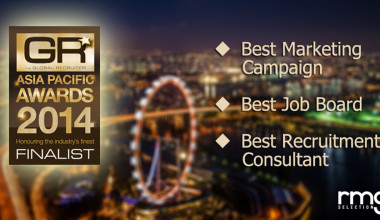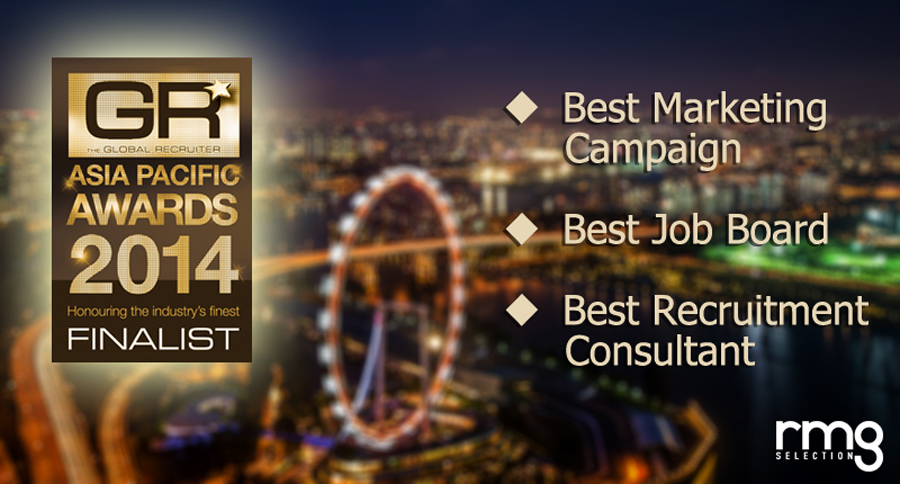 Working with Third Party Recruiters
Working with Third Party Recruiters
By Ruben van den Boer, Recuitment specialist of RMG
A common mistake that a lot of HR managers make is that they attribute unsuccessful hire s to either job-seekers or recruitment consultants. However, according to the data from the RMG China Talent Flow Survey of 2012 and 2013 (see figure 1), the role of third party recruitment consulting agencies is quite important in the interview process. Two-thirds of the hiring calls for mid and senior level positions come from recruiters instead of HR people from the hiring company. Imagine if HR managers and recruitment consultants became team players during the interview process. In this instance the chances of a successful hire would be greatly enhanced. In this regard, I would like to share some basic principles of how HR managers can work better with third party recruiters to control interview processes and candidate selection.
A recruitment consultant with systematic training understands that to guide candidates through the whole interview process is a primary task. On average, executive search professionals spend at least 45 minutes preparing candidates for one single interview, and another 30 minutes on an after-interview debriefing. This guidance will not stop until the candidate is well seated in the new role. On the employers’ side, recruitment consultants need to work closely with the HR department to ensure a smooth interview process. While working with some clients, I have noticed that problems often appear when HR managers are not clear about four things, which are listed below in each point:
1. Communicating clearly with the senior management
To start with, I would like to take a real example. Last year, the HR manager who worked for one of my clients in Tianjin resigned. It was difficult for me to believe that she had quit her position within a top market player in the logistics industry where she had worked for over six years. Later on, she explained the reason of her resignation to me. She felt too much pressure from top management regarding a special job opening which was vacant for a year and a half. As I recall, I was also working with her on that case at the time. However, I stopped after providing 10 candidates. The reason why I stopped was that there was no mutual agreement on the prospective candidate profile from her and the managing director. Even though she repeatedly sought the understanding of senior management, there was little support. The pressure went up while the budget and requirements barely changed.
Recruitment consultants can help in-house HR a lot on difficult head accounts, but they need to be very clear of the candidate qualifications. In this case, the biggest pressure of HR managers in their recruitment job comes from a lack of information and support from the senior management.
Challenging the returning employees’ loyalty is a necessary step before allowing them back into the company.
2. Formulating unique company selling points (USPs)
In general, when HR managers describe to me in detail what their ideal candidates should look like, the question I usually ask them is: what are the unique selling points your company has? The interesting phenomenon, however, is that there is always a 30-second silence over the phone call when I ask this question. I understand what clients are looking for. I also know where and how to find those candidates who fit the requirement. However, prudent competitors are hiring the same candidates with good qualities. So if a company does not figure out what its unique selling points are in the first place, then it will be difficult for both HR managers and recruitment consultants to convince potential candidates.
Hiring companies should realize that they need to promote their image in order to attract the best candidates. To define a company’s USPs, HR managers and the senior management team should have a sitdown discussion about the company’s business model, organisational culture, missions and values, team building events, company public relations and branding, internal training system and so forth.
3. The interview process matters
In order to save time, some hiring managers or senior management personnel would like to make a hiring decision after one round of interviews. To be honest, I would never advise my clients to do so. Although it is possible for a hiring manager to select the right candidate fairly quickly, for candidates it is a different story. Changing jobs is an important step in one’s career. There are many factors to consider before a candidate can clear his or her mind and make a balanced decision. Experience shows that when a candidate is rushed into a decision, he or she often quits the job within three months; just because the decision was made unbalanced.
When a company decides to hire a candidate based on their performance during the interview, that candidate does make a decision to accept a job based on the interview process. A candidate puts high value on the professionalism of the HR manager, the duration of the interview process and especially the communication towards the candidate during the process.
4. Working with specialists, not generalists
Some companies assign many different recruitment agencies with the belief that this will result in a broader choice of candidates. However, the reality is that the HR Manager spends too much time screening unqualified candidates and eventually eliminating under performing agencies from the search process. A recruiter needs in-depth market knowledge to understand the client’s hiring needs and to judge whether their requirements are realistic or not. Only an industry specialist recruiter has the understanding of both the client and the candidate to ensure a smooth procedure of the interview process. Specialized recruiters can indicate the best talent in the market due to their wide network in a niche sector. They are able to attract the right candidates through their market knowledge. Specialists are well aware of current market trends and understand the availability of the labor market, and it is important for a company to select the right recruitment consultant to work with.

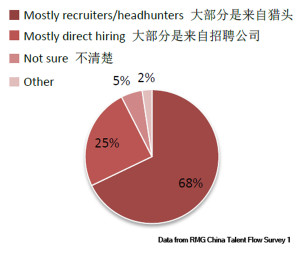
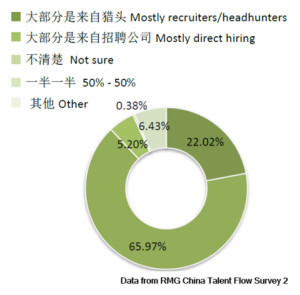

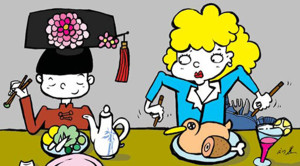 Culture Shock Is No Shock
By Robert Parkinson-CEO of RMG Selection
Culture Shock Is No Shock
By Robert Parkinson-CEO of RMG Selection
